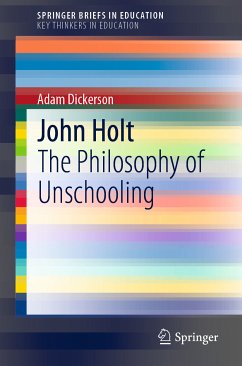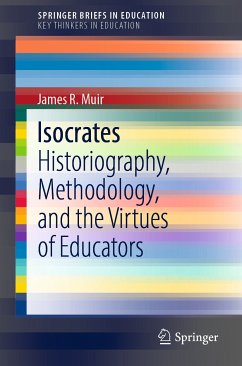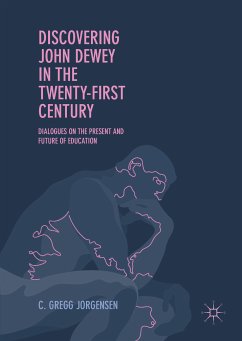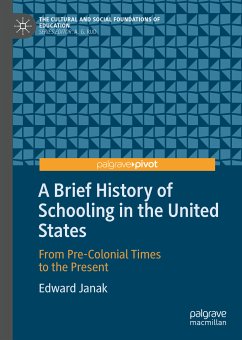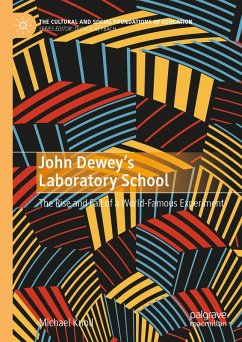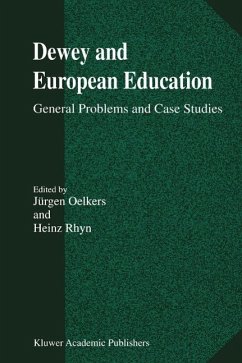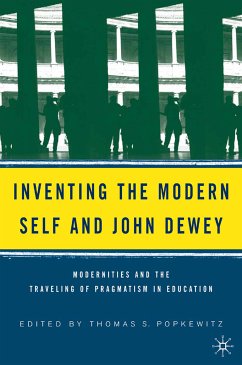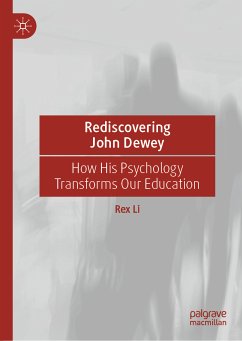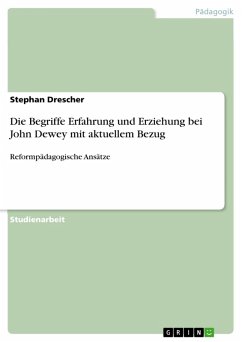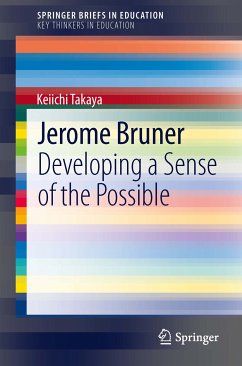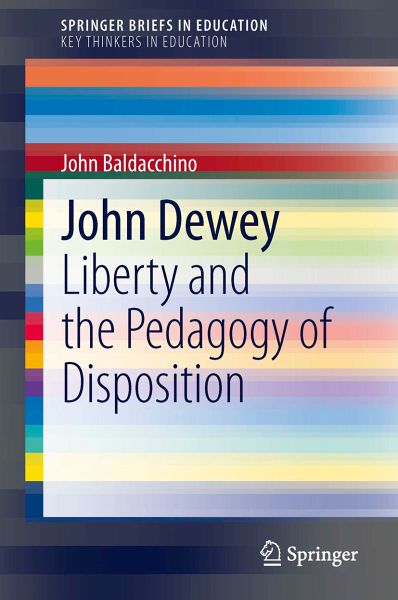
John Dewey (eBook, PDF)
Liberty and the Pedagogy of Disposition
Versandkostenfrei!
Sofort per Download lieferbar
40,95 €
inkl. MwSt.
Weitere Ausgaben:

PAYBACK Punkte
20 °P sammeln!
This book presents John Dewey's work as a claim to the human potentials found in experience, the imagination and the possibilities that emerge from our disposition towards liberty. It details Dewey's work as a critical junction marked by the quandary of schooling and culture, and where learning is also positioned beyond the boundaries of educational institutions. The book first examines Dewey in his various contexts, influences and life experiences, including his relationship with Hegelian philosophy, Emersonian transcendentalism, Darwin's method of scientific experimentation, and his deep bon...
This book presents John Dewey's work as a claim to the human potentials found in experience, the imagination and the possibilities that emerge from our disposition towards liberty. It details Dewey's work as a critical junction marked by the quandary of schooling and culture, and where learning is also positioned beyond the boundaries of educational institutions. The book first examines Dewey in his various contexts, influences and life experiences, including his relationship with Hegelian philosophy, Emersonian transcendentalism, Darwin's method of scientific experimentation, and his deep bond with his first wife Alice Chipman and their work in the Laboratory School. It then revisits Dewey's approach to politics and education within contemporary debates on education, learning and the School. This discussion takes stock of what does a diverse and plural society mean to us today, at a time that remains challenged by the politics of class, race, gender and sexuality. Dewey's work has a profound bearing on our understanding of these challenges. Thus to read and talk Dewey is to engage with a conversation with Dewey the philosopher who poses an array of questions, ranging from the way we feel (aesthetics), behave (ethics), think (logic), live as a community (politics) and how we learn (education). In addition, the book also takes Dewey's concept of experimentation into a discussion of unlearning and deschooling through the arts and aesthetics education. Offering a thought-provoking dialogue with Dewey's philosophy, this book recognizes the contradictory nature of learning and extends it to the open horizons of experience. By way of discussing the various aspects of Dewey's approach to organization, policy making and the relationship between education and business, it repositions Dewey in contemporary political and educational contexts, exploring the possibility for education to be free and yet rigorous enough to help us engage with forms ofknowledge by which we negotiate and understand the world.
Dieser Download kann aus rechtlichen Gründen nur mit Rechnungsadresse in A, B, BG, CY, CZ, D, DK, EW, E, FIN, F, GR, HR, H, IRL, I, LT, L, LR, M, NL, PL, P, R, S, SLO, SK ausgeliefert werden.



